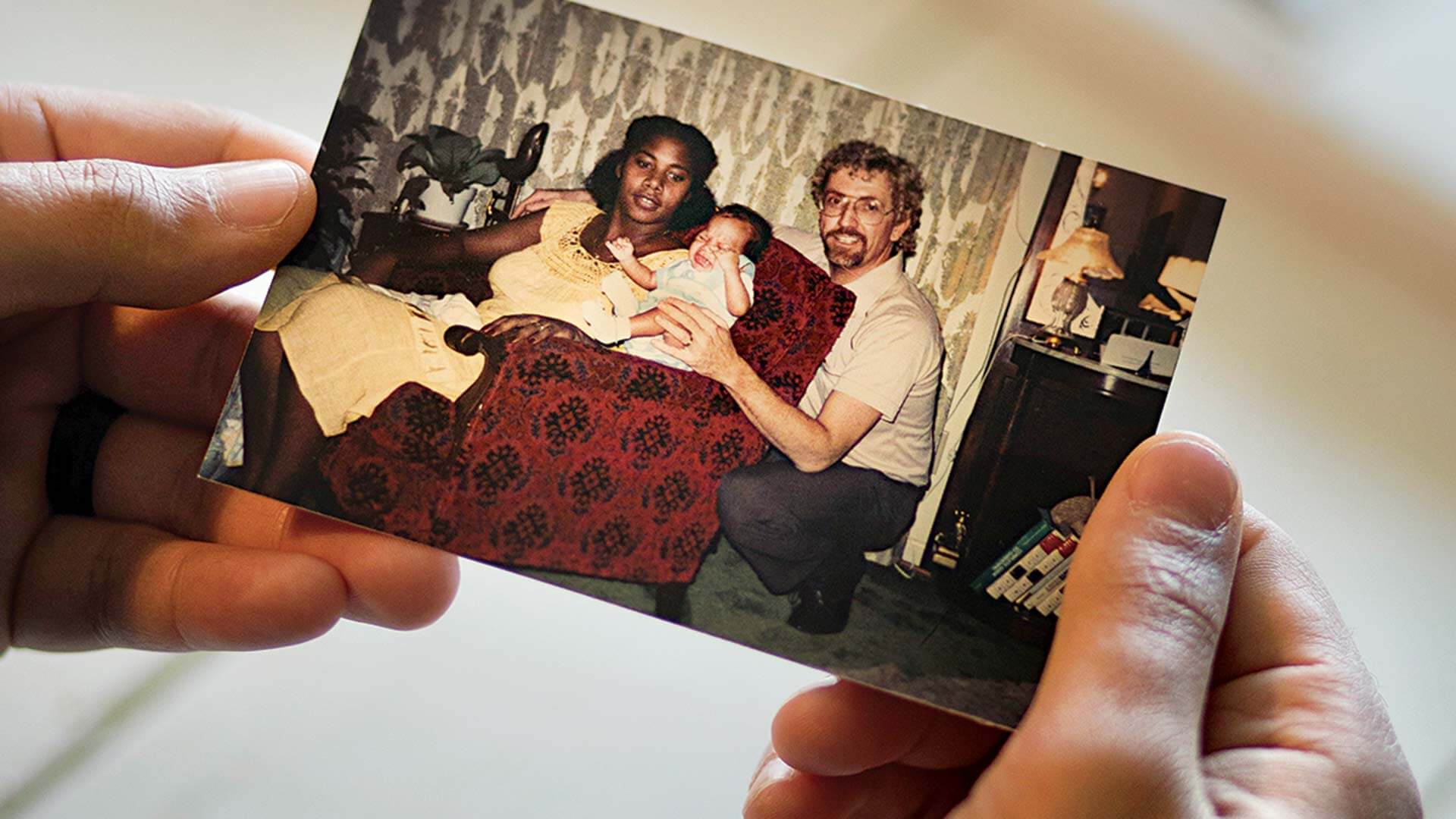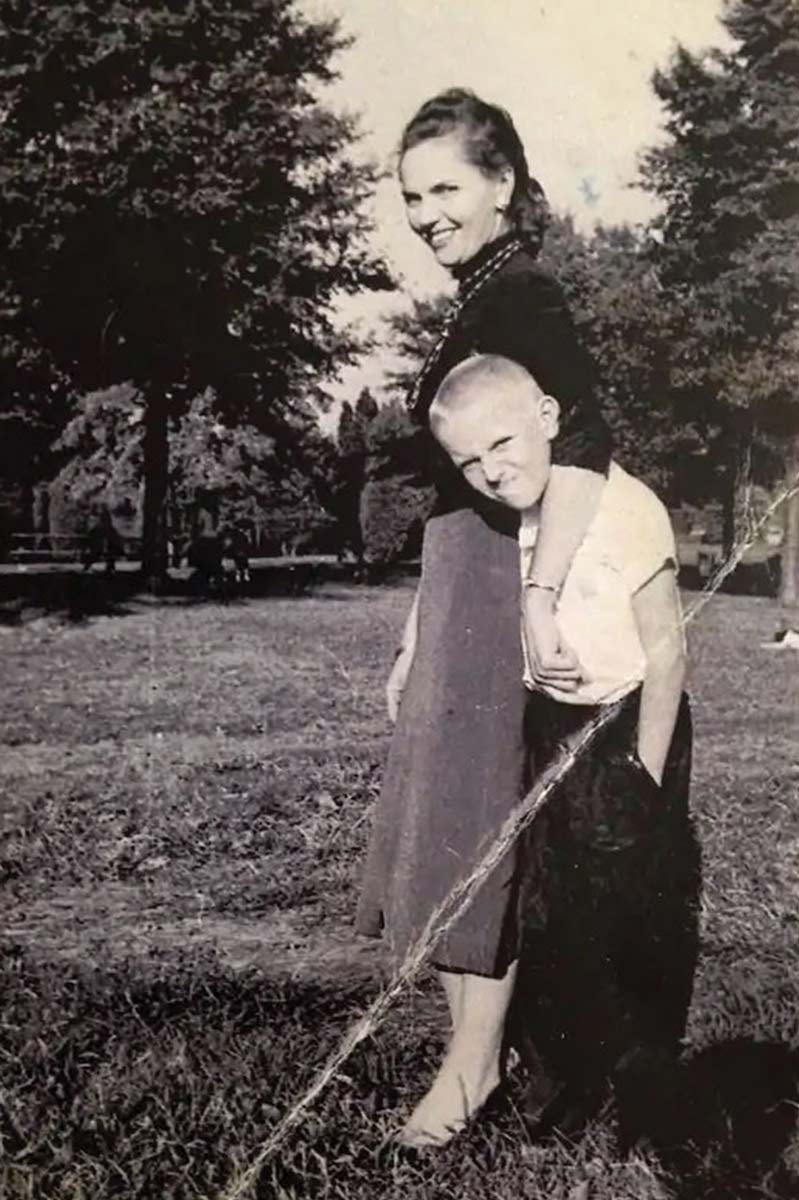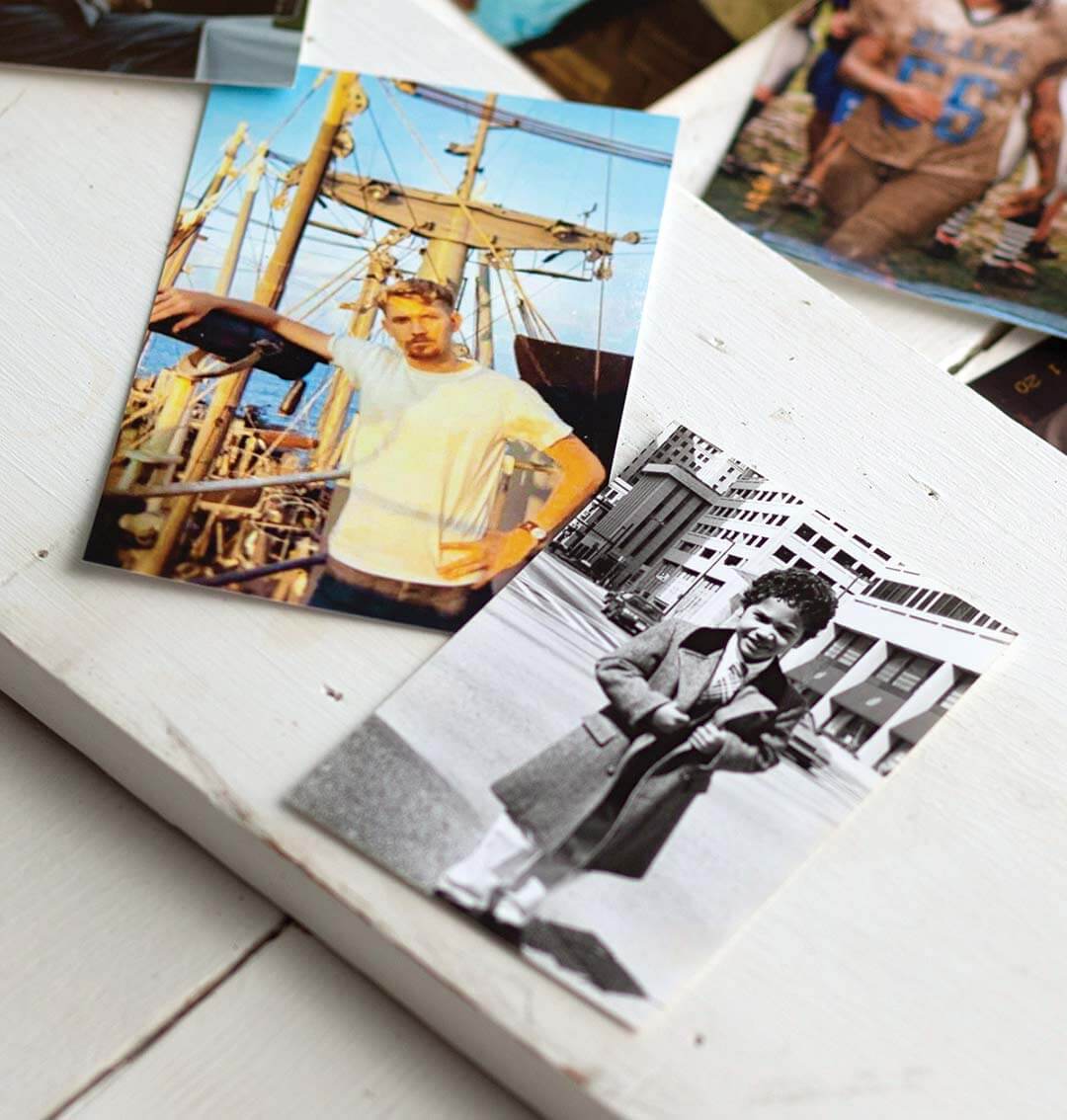- June 02, 2021
- By Robert Klemko ’10
The first time I talked with a Black NFL coach about overcoming bigotry, he dished out more of the same.
I was a first-year NFL reporter for USA Today in 2013, a young Black journalist interviewing this prominent coach on background, meaning nothing could be attributed to him by name.
Though my job was to cover the X’s and O’s of the game, I asked him over our lunch if he thought there would ever be an openly gay player in the NFL.
“No,” he said casually, between bites of beef au jus. “No one wants to shower with a f—–.”
The answer ignited a distinct kind of anger, one that slowly transforms into disappointment and, finally, pity. It was what I had felt as a teenager when I spoke to my grandmother about the Nazis arriving at her Ukrainian village during the summer of 1941 and marching her neighbors to their deaths.
I had asked her then what seemed like the most urgent question: Did she want to help them? “No,” she said, recoiling. Why? “Because they were Jews.”
Now, at age 24, hearing something that offended me just as deeply, I wondered: How will I ever stick to football? I dwelled for weeks on his words and what they meant for my career. It was a reminder there would always be this tension between covering a sport, and covering people, and all of our fears, insecurities and hatreds.
It took nine years, but eventually, the tension forced me to choose the latter. My dad, despite being raised by that angry, sneering woman, shared none of her values. He would have loved to talk to me about my recent career change, but by the time I made the switch, it was too late.
That coach’s comment also wasn’t so different than one my mom had heard a couple of decades earlier. A fellow veterinary student at UC Davis, a white man, told her there was no way he would be “sharing a locker with a n—–.”
 My mother, Dr. Lisa Bradley Klemko, came to the University of Maryland in 1984 as a young veterinarian and retired in 2018 as an assistant dean in the College of Computer, Mathematical, and Natural Sciences. Aware how difficult life could be for aspiring Black doctors, she fought for inclusion and helped transform UMD into one of the nation’s top universities for sending people of color to medical schools.
My mother, Dr. Lisa Bradley Klemko, came to the University of Maryland in 1984 as a young veterinarian and retired in 2018 as an assistant dean in the College of Computer, Mathematical, and Natural Sciences. Aware how difficult life could be for aspiring Black doctors, she fought for inclusion and helped transform UMD into one of the nation’s top universities for sending people of color to medical schools.
In 1987 she met Alex Klemko, a white man, at a bar in Dupont Circle. He showed up to their first date the next week wearing a clown suit in full makeup to take her out to dinner on Halloween. She reluctantly ate Korean food with the clown, whose lack of embarrassment won her over.
He was eccentric, hilarious and hardworking. He lived for a good prank. If he’d ever submitted to a sit-down with a shrink, the doctor might’ve said he was compensating for a joyless childhood.
He emigrated from Heidelberg, Germany, to the U.S. as a boy with his mother, Antonia, a Ukrainian World War II refugee. As he grew up with her in Alexandria, Va., her romantic partners often treated my dad like a servant, he said; one of them forced my kindergarten-aged father to spend his free time in the garage brewing beer. He joined the Navy to pay for college and served in Vietnam. He married, divorced and then met a young veterinarian from the Bay Area who had traveled across the country to take a job at the University of Maryland.
Antonia was thrilled my father was dating a doctor. He and his brother struggled to come up with ways to break it to her that she was Black. Their mother had arrived in the U.S. with few skills, knowing little English, but got by as a live-in maid to wealthy white families, clinging to the desperate notion that she—a white woman—could at least look down on Americans of color.
One day, several months into the relationship, Antonia phoned her son to let him know she’d be dropping by his house to pick something up. That’s great, he told her. And you can meet my girlfriend … but I have to tell you, she’s Black. She paused for a moment, then said two words: “F— you.”
She didn’t speak to her son again for five years.
When they married, Antonia gathered most of my father’s childhood pictures—black and white images that served as the only record of his youth—and destroyed them. What few she didn’t burn, she set aside and blacked out my dad’s face with a marker. Then she wrote “N—– LOVER” on each picture, put them in an envelope and mailed them to my parents.
Antonia never apologized. My father saw her privately over the years on weekends. He rejected her racism and built a family, but never fully turned away from her. He never let her forget what she did to his pictures. In high school I was allowed to meet her for the first time. As uncomfortable as my mother was with the idea, she felt we needed to know more about the woman who tried to tear apart our family before it started.
She was kind, gracious and excited. She made me a Napoleon cake. I didn’t say much. Soon after that, I interviewed Antonia and what she told me about her life in the war sticks with me to this day.
“… because they were Jews.”
On my first day of Blake Morrison’s feature writing class at Maryland, he asked each of us to share one thing about ourselves that nobody knows. To our shock, he followed up each disclosure with a fact he knew about our lives. He asked me to tell the story of an iguana tearing my pinky finger off in third grade. (In case you’re wondering, it was re-attached.) He later told us he had messaged some of our friends on Facebook when he got the class roster, mining for anecdotes about us. It was a lesson in the lengths good reporters go to get information, but it was also a lesson in ego.
 It felt good to have this person care enough about my story to go around asking friends I hadn’t talked to in years about me. It endeared him to me, and it helped me understand Antonia. Until then, I couldn’t understand why she was so eager to talk about such a deep, personal flaw. Morrison’s simple but profound philosophy of interviewing gave me the answer: “People just want to tell their story.”
It felt good to have this person care enough about my story to go around asking friends I hadn’t talked to in years about me. It endeared him to me, and it helped me understand Antonia. Until then, I couldn’t understand why she was so eager to talk about such a deep, personal flaw. Morrison’s simple but profound philosophy of interviewing gave me the answer: “People just want to tell their story.”
That’s why Antonia was willing to tell her Black grandchild that she was still an unapologetic racist, that she had no regrets. She wasn’t necessarily proud of her story, or even confident it would be received well, but it was hers, and no one had ever held out a recorder and asked her to tell her story.
I learned this over seven years covering the NFL: If you give people the chance to tell their story, their way, they often take it. At my worst, I was access-hungry, still covering the mechanics of the game of football and vying to be close to the people who could make that job easier. At my best, I covered it as a cultural phenomenon, zeroing in on one person’s story and letting it tell me and my readers something about the world. I wrote about racial disparities in NFL hiring practices. I chronicled the journey of the NFL’s first openly gay player, Michael Sam (two years after my chat with that homophobic coach). I interviewed a woman who’d been repeatedly beaten and harassed by her boyfriend, an NFL player, and what the league had and hadn’t done to stop it.
Then I was dispatched to cover my first trial: the rape allegations against former NFL tight end Kellen Winslow II. According to police and a jury of his peers, this member of NFL athletic royalty—a collegiate national champion and All-American and the son of a pro hall of famer—had brutalized the most vulnerable people in our society: elderly, indigent and homeless women. I watched those women describe what Winslow had done to them on the side of the road, in hot tubs, in his SUV. I talked to doctors and psychologists, and I wrote about what I learned.
Then I went back to covering NFL games. A few weeks later I sat in a stadium press box, laptop and catered meal in front of me, and thought, “What the f— am I doing here?”
I was four months into my new job as an investigative sports reporter at The Washington Post when the pandemic began in the U.S. The national news desk asked for volunteers to cover it. Having no experience covering health, infrastructure, government or anything outside of professional football, I thought there was probably only one thing I can do as well as anyone else: I can be available.
 It was something my dad taught me. As owner and lead salesman at an office moving company, he could eyeball a few floors full of offices and tell you exactly how long it would take to empty it and what it would cost. And then you’d probably find him at the move, from start to finish. He was always there, always available, through recessions, through multiple cancer diagnoses, through a pandemic.
It was something my dad taught me. As owner and lead salesman at an office moving company, he could eyeball a few floors full of offices and tell you exactly how long it would take to empty it and what it would cost. And then you’d probably find him at the move, from start to finish. He was always there, always available, through recessions, through multiple cancer diagnoses, through a pandemic.
COVID-19 and lewy body dementia finally ended his ironman streak. Unable to drive or hold a coherent conversation, he spent the last year of his life grounded and isolated, all while my world was finally opening up.
My wife became pregnant with our first child, a boy. And a few weeks into the pandemic assignment, the world shifted again. George Floyd was killed in Minneapolis, face-down in the street, choked under a police officer’s knee. Editors sent me to the city, where I arrived to find a police station in flames and rioters waving stolen handcuffs and batons, screaming into the night.
Black Lives Matter became a coverage priority again. I went to Tulsa, rented a scooter and followed protesters approaching a rally for then-President Donald Trump.
Trump supporters haven’t been easy interview subjects for some time. Introduce yourself to them as a Washington Post reporter, and you can expect to be called “Fake News” nine times out of 10. In this case, they were leaving an indoor rally during a pandemic, maskless, and immediately suspicious of anyone wearing a face covering.
As I saw a little girl among the Trump supporters begin to cry amid the shouting, the demonstrations and counterdemonstrations, and her father kneel down to comfort her, I had an idea for an approach that felt fresh: What are Trump supporters telling their children about their opponents?
I knew what my parents had taught me about people who thought Black women shouldn’t be veterinarians, or that mixed-race families shouldn’t exist. I was told that those people needed to be listened to and learned from, so that we might understand how people learn to hate.
So I asked a bunch of families leaving the rally if they’d share their thoughts with me. I laughed off their taunts to take off my mask. I declined to shake their hands. I said I didn’t know about all that “fake news” stuff, because I was a sportswriter (my new, very effective cover).
After all that, they were happy to tell me their story, how the president hadn’t fanned the flames of racism, how Black Lives Matter had been funded by powerful, anti-American Jews, and who the “real racists” were: social justice activists. They were uninterested in the perspectives of their opponents, and they were passing that on to a new generation, illustrating anew the depths of our national divide over race. It was hard to talk about, and equally difficult to write about.
It was a lot like that interview with Antonia, the tape of which I’d stuffed away in a box in the garage.
Alexander Robert Klemko died Jan. 9 at MedStar Montgomery Medical Center. I was able to say goodbye to him, in a way, when a kind overnight nurse held up a phone to his ear while he lay unconscious in the hospital. I knelt in the lawn in front of the hospital and wept, knowing finally he wouldn’t meet my son, due in May.
When he died, I knew there was no keeping Antonia, Alex and Lisa’s story in a box. It was painful, sad, angering, heroic and worth telling and learning from.
After speaking to those parents in Oklahoma, I realized what I want most for my son, after good health and good friends. I want him to grow up with the confidence, experience and courage it will take to tell me when I’m wrong.
Robert Klemko is a 2010 graduate of the Philip Merrill College of Journalism and a staff writer at The Washington Post covering criminal justice and the broader movement for police reform. He covered the NFL for Sports Illustrated for six years.
Topics
People